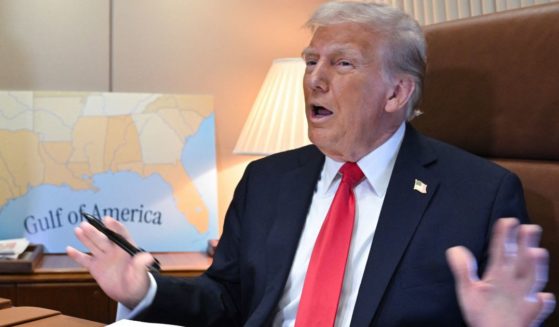Twitter CEO Found Sharing Russian Propaganda
Twitter has long seen itself as a noble warrior in the fight against so-called “fake news” — but many people believe the social media site has gone too far.
Whether it’s banning users who dare hold unapproved opinions, restricting users who defend Israel or using a well-known biased source to label certain people “hate groups,” there has been a hint of Orwell’s “1984” in many of their recent decisions.
Now, you can add “The Emperor’s New Clothes” to the list of cautionary tales that Twitter is emulating. Even after the company claimed to be on a crusade against so-called “trolls” and inaccurate news sources, it’s CEO was just revealed to be spreading the same “fake news” he pretends to be against.
According to The Wall Street Journal, Twitter CEO Jack Dorsey shared over a dozen tweets around the time of the presidential election which originated from an account that investigators now know to be part of a Russian trolling operation.
Dorsey “between late 2016 and mid-2017 shared at least 17 tweets from a Russian troll who went by Crystal1Johnson on Twitter, the Journal’s analysis found,” the respected newspaper stated.
“The tweets from the Russian account that Mr. Dorsey shared touched on topics including Bob Marley’s son converting a prison into a place to grow marijuana and former San Francisco 49ers quarterback Colin Kaepernick, who first sparked the anthem controversy to make a statement on the treatment of African-Americans in the U.S.,” The Wall Street Journal continued.
While Dorsey did not originate the “fake news” tweets, he willingly shared them, despite the fact that they were from unconfirmed news sources known to be connected to the Internet Research Agency, a Russian propaganda effort.
“The Kremlin-aligned Internet Research Agency ran a propaganda campaign in an attempt to sow discord in the U.S. before and after Election Day, prosecutors say,” The Journal reported.
Although media outlets and liberals — most famously Hillary Clinton — tried to pin President Donald Trump’s victory on Russian meddling, a detailed analysis found that the Kremlin was most likely trying to sow seeds of distrust on both sides of the political aisle, and was “trolling for both teams,” you might say.
Republican Sen. James Lankford of Oklahoma described the Russian efforts as meant “to create instability and doubt in governments, because they believe they benefit from the chaos and the loss of confidence in U.S. institutions.”
Why American voters need Twitter trolls to lose confidence in U.S. institutions is a mystery; a visit to the local DMV is enough for most people to swear off government entirely.
The revelation about Twitter CEO’s unintentional promotion of Russian “fake news” highlights the big problem with policing speech online: It’s almost impossible to separate “legitimate” opinions from meddling troll posts, even when it’s somebody’s job to know the difference.
A major side effect of setting up complex but flawed algorithms or offices full of human workers to screen and censor speech is that important voices are silenced in the process.
Computers have never been good at detecting the subtle cues that differentiate straight news from satire, and human censors will always have political and personal biases, no matter how much they insist that this isn’t the case.
When even Twitter’s social justice CEO gets caught sharing “fake news,” one question begs to be asked: Is it time to re-think the way social media companies deal with censorship, and take a much more laissez-faire approach?
The solution, in a word, is freedom. Centralized solutions rarely work, and the beauty of the internet is that crowd-sourced data can be more accurate and up to date than any stuffy old newspaper or slow-moving institution.
Ironically, this is why people flocked to Twitter in the first place: By seeing what groups of people think in real time, patterns emerge and users can be more informed, with more variety of sources, than if they relied on an old-fashioned legacy news source.
Stories can be cross-checked and confirmed or debunked in seconds, without the need for a biased arbiter of truth essentially filtering information for users.
In other words, let freedom work and allow people to screen content for themselves. The battle against “fake news” shouldn’t destroy freedom of speech and diversity of opinions in a blind quest for a goal that was never realistic in the first place.
Truth and Accuracy
We are committed to truth and accuracy in all of our journalism. Read our editorial standards.
Advertise with The Western Journal and reach millions of highly engaged readers, while supporting our work. Advertise Today.












